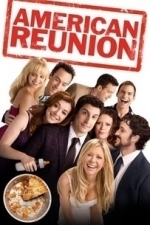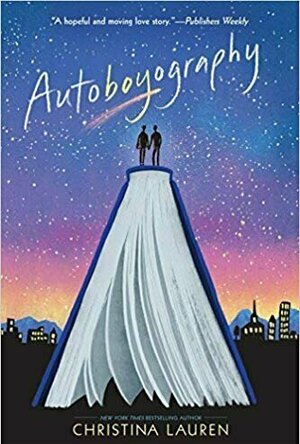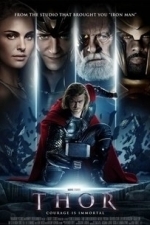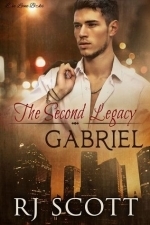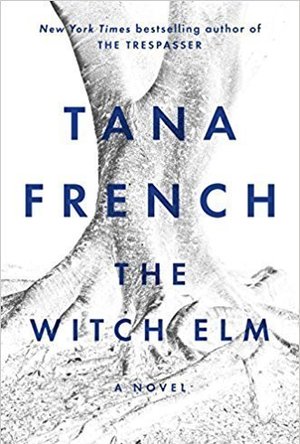Search
JT (287 KP) rated American Reunion (2012) in Movies
Mar 10, 2020
Alot of time has passed since 1999, and in that time there have been a long line of spin off American Pie films, if you don’t count the sequel and American Pie: The Wedding. Of those films only Jim’s Dad (Eugene Levy) has starred in every single one, so it was brilliant to see all the old gang back together again, and how we have missed them all.
The gang is back together – but was it worth it?
Grown up and with adult lives, they head back to where it all began for a high school reunion which of course involves a whole heap of laughter, and there is plenty of that.
Jim and Michelle are now married with a small child and stuck in a rut of a no sex marriage, Oz now a hot shot sports reporter has trouble controlling his high maintenance girlfriend. Kevin is seemingly happy as a house husband and Finch is still very much the enigma of the group, and then of course there’s Stifler, probably the only character not to have changed at all.
There are some outrageous moments, right from the opening scene, even giving a hint of what is going to happen would suck any laughter out of you so for that I am not going to reveal too much. Let’s just say it is once again Jim who pretty much steals the show.
The group start to look at themselves and realise that they are very much all grown up with things never able to be the same again, as Jim harshly points out to Stifler in one scene.
There is through all the hilarity some touching moments, in particularly featuring Jim’s Dad who is getting over the passing of his wife and takes some advice from Jim himself to get back onto the dating horse. This of course results in some more outlandish behaviour at another Stifler party.
The American Pie franchise is very much an icon of teenage angst, at least for those films that matter to us. I doubt anyone would have sat through any of the American Pie Presents films.
American Reunion manages to get the whole cast back together, even if they are only on screen for a brief few minutes its like seeing an old friend once again. It’s almost as if we can resonate with every character and are pleased that their lives have turned out or are going to turn out for the better.
The film climaxes with a killer piece of revenge courtesy of Stifler, one which in the back of our minds we knew was coming and involves a well cast cameo.
It might not be everyone’s chosen comedy of 2012, but its sure as hell going to be up there!
The gang is back together – but was it worth it?
Grown up and with adult lives, they head back to where it all began for a high school reunion which of course involves a whole heap of laughter, and there is plenty of that.
Jim and Michelle are now married with a small child and stuck in a rut of a no sex marriage, Oz now a hot shot sports reporter has trouble controlling his high maintenance girlfriend. Kevin is seemingly happy as a house husband and Finch is still very much the enigma of the group, and then of course there’s Stifler, probably the only character not to have changed at all.
There are some outrageous moments, right from the opening scene, even giving a hint of what is going to happen would suck any laughter out of you so for that I am not going to reveal too much. Let’s just say it is once again Jim who pretty much steals the show.
The group start to look at themselves and realise that they are very much all grown up with things never able to be the same again, as Jim harshly points out to Stifler in one scene.
There is through all the hilarity some touching moments, in particularly featuring Jim’s Dad who is getting over the passing of his wife and takes some advice from Jim himself to get back onto the dating horse. This of course results in some more outlandish behaviour at another Stifler party.
The American Pie franchise is very much an icon of teenage angst, at least for those films that matter to us. I doubt anyone would have sat through any of the American Pie Presents films.
American Reunion manages to get the whole cast back together, even if they are only on screen for a brief few minutes its like seeing an old friend once again. It’s almost as if we can resonate with every character and are pleased that their lives have turned out or are going to turn out for the better.
The film climaxes with a killer piece of revenge courtesy of Stifler, one which in the back of our minds we knew was coming and involves a well cast cameo.
It might not be everyone’s chosen comedy of 2012, but its sure as hell going to be up there!
Kristy H (1252 KP) rated Autoboyography in Books
Mar 19, 2020
When Tanner's family relocates from progressive California to Provo, UT, the bisexual teenager is basically forced back in the closet. While his parents are actually incredibly supportive of his sexuality, their own past experiences lead them to want to keep their son safe and guarded in the largely conservative Mormon community. Now a senior in high school, Tanner is ready to graduate and leave Provo behind. But when his best friend Autumn convinces him to join the Seminar--a rather famous Provo high school class where students write a novel in four months--everything changes. There Tanner meets the Seminar's most well-known graduate, Sebastian Brother, a Mormon who sold his book rights last year. Tanner immediately falls for Sebastian, and he starts chronicling it all: in his own book.
I have a lot of complicated feelings about this book. It's wonderful to see a bisexual protagonist in YA literature, even if Tanner's bisexuality doesn't seem fully explored (and he's not always believed). This is very emotional book, and it certainly wrenched at my heartstrings. From the beginning, it seems pretty clear that there isn't going to be an easy outcome. Sebastian and Tanner are going to fall for each other. The Mormon community doesn't support their brethren being gay. Sebastian can either have Tanner or his family, right?
I also wasn't sure why Tanner's family was so against him a) coming out in Provo or b) falling for a Mormon. We learn that his family has a lot of baggage that causes this, but it was a little strange. The book's exploration of the religious aspect of Mormonism was very interesting and eye-opening, though, as a result, I wasn't sure how realistic the ending was. Still, I found the two boys' exploration and relationship to be heartbreaking and riveting.
There is a lot going on in the book--so many deep emotions, along with coverage of religion and sexuality. I found myself very protective of Tanner and trying to understand his parents, at times, even if they were supportive overall. I even felt that way about Sebastian, even though I couldn't imagine, truly, how he must be feeling, trying to reconcile his own emotions about Tanner against his religious upbringing.
In the end, I liked this one a lot even if I found some areas problematic (Tanner's parents; an incident with Tanner and Autumn; the ending wrapping up a little neatly). It was a very insightful look at religion and sexuality for these two young men and really got me thinking about a lot. Through all the angst, there was a lot of depth and feeling. 4 stars.
I have a lot of complicated feelings about this book. It's wonderful to see a bisexual protagonist in YA literature, even if Tanner's bisexuality doesn't seem fully explored (and he's not always believed). This is very emotional book, and it certainly wrenched at my heartstrings. From the beginning, it seems pretty clear that there isn't going to be an easy outcome. Sebastian and Tanner are going to fall for each other. The Mormon community doesn't support their brethren being gay. Sebastian can either have Tanner or his family, right?
I also wasn't sure why Tanner's family was so against him a) coming out in Provo or b) falling for a Mormon. We learn that his family has a lot of baggage that causes this, but it was a little strange. The book's exploration of the religious aspect of Mormonism was very interesting and eye-opening, though, as a result, I wasn't sure how realistic the ending was. Still, I found the two boys' exploration and relationship to be heartbreaking and riveting.
There is a lot going on in the book--so many deep emotions, along with coverage of religion and sexuality. I found myself very protective of Tanner and trying to understand his parents, at times, even if they were supportive overall. I even felt that way about Sebastian, even though I couldn't imagine, truly, how he must be feeling, trying to reconcile his own emotions about Tanner against his religious upbringing.
In the end, I liked this one a lot even if I found some areas problematic (Tanner's parents; an incident with Tanner and Autumn; the ending wrapping up a little neatly). It was a very insightful look at religion and sexuality for these two young men and really got me thinking about a lot. Through all the angst, there was a lot of depth and feeling. 4 stars.
LeftSideCut (3776 KP) rated Thor (2011) in Movies
Jul 21, 2020
The first Thor film gets a bad wrap, and I think it's due to a combination of people forgetting just how good it is, and it perhaps being tarnished by it's underwhelming sequel, when in reality, Thor marks Marvel Studios first steps into more cosmic territory, a realm that was once deemed a little too silly for the general public, and pulls it off in style.
Firstly, translating the many characters of the Thor comic series is no easy feat. They all talk in a Shakespearean dialect, and have ridiculous costumes. The script though is fantastic. The Asgardian characters are still very bombastic, but when mixed with humans from Earth, it's becomes naturally comical. It doesn't feel corny, and somehow, it works very well.
As for the costumes, everyone just looks badass truth be told so hats off to the costume department.
Chris Hemsworth is the embodiment of Thor, and it's truly difficult to see anyone else in the role. He's charming, funny, and has just the right amount of god-like angst, and it's easy to see why he's become a firm favourite as the MCU has continued to expand.
The same goes for Tom Hiddleston as Loki. His portrayal of the God of Mischief is equal parts sinister, slimy, and sympathetic. He's the villain that you can't help but love and it's a testament to his performance that Loki has remained a mainstay in the MCU, a franchise that is often guilty of the one-and-done method when it comes to villains.
The cast is rounded out by a stellar lineup, including Natalie Portman, Anthony Hopkins, Rene Russo, Jaime Alexander, Stellan Skaragård, Idris Elba and even includes a bigger role for the always excellent Clark Gregg. This film also serves as the introduction of Jeremy Renner as Hawkeye, another MCU staple. It's a strong cast list without a doubt.
The action set pieces are all pretty fun, and the effects still just about hold up. I'd argue that Thor looks better than the first two Iron Man films in that respect. Asgard looks great as well.
Another thing I absolutely LOVE about Thor is the music score by Patrick Doyle. In terms of original orchestral music, it's probably by favourite within the MCU (possibly on par with Infinity War and Endgame) but it's fantastic, and gives me goosebumps every damn time I watch this movie
Thor is action packed, with a fantastic script and score, and a great cast with well fleshed out characters. Bringing Kenneth Branagh on board as director was a great choice, and overall, the film deserves way more love than it gets.
Ignoring the first Avengers movie, Thor is the crown jewel of phase one!
Firstly, translating the many characters of the Thor comic series is no easy feat. They all talk in a Shakespearean dialect, and have ridiculous costumes. The script though is fantastic. The Asgardian characters are still very bombastic, but when mixed with humans from Earth, it's becomes naturally comical. It doesn't feel corny, and somehow, it works very well.
As for the costumes, everyone just looks badass truth be told so hats off to the costume department.
Chris Hemsworth is the embodiment of Thor, and it's truly difficult to see anyone else in the role. He's charming, funny, and has just the right amount of god-like angst, and it's easy to see why he's become a firm favourite as the MCU has continued to expand.
The same goes for Tom Hiddleston as Loki. His portrayal of the God of Mischief is equal parts sinister, slimy, and sympathetic. He's the villain that you can't help but love and it's a testament to his performance that Loki has remained a mainstay in the MCU, a franchise that is often guilty of the one-and-done method when it comes to villains.
The cast is rounded out by a stellar lineup, including Natalie Portman, Anthony Hopkins, Rene Russo, Jaime Alexander, Stellan Skaragård, Idris Elba and even includes a bigger role for the always excellent Clark Gregg. This film also serves as the introduction of Jeremy Renner as Hawkeye, another MCU staple. It's a strong cast list without a doubt.
The action set pieces are all pretty fun, and the effects still just about hold up. I'd argue that Thor looks better than the first two Iron Man films in that respect. Asgard looks great as well.
Another thing I absolutely LOVE about Thor is the music score by Patrick Doyle. In terms of original orchestral music, it's probably by favourite within the MCU (possibly on par with Infinity War and Endgame) but it's fantastic, and gives me goosebumps every damn time I watch this movie
Thor is action packed, with a fantastic script and score, and a great cast with well fleshed out characters. Bringing Kenneth Branagh on board as director was a great choice, and overall, the film deserves way more love than it gets.
Ignoring the first Avengers movie, Thor is the crown jewel of phase one!
Kristy H (1252 KP) rated Perfect on Paper in Books
Mar 11, 2021
A cute teen love story
Darcy Phillips is excellent at doling out relationship advice. So good, in fact, that she secretly runs locker 89 at her high school where her fellow classmates drop off letters asking for help and Darcy answers them (for a $10 fee). But her secret identity is challenged when Alexander Brougham catches her at the locker after school. So Darcy reluctantly agrees to help him get back together with his ex-girlfriend, Winona. At a hourly cost, because Alexander is loaded and Darcy's a rare scholarship student. And after all, if everyone finds out she runs locker 89, not only will her secret be out, her best friend/crush, Brooke, will realize she's done some questionable meddling in Brooke's life via the locker. All she needs to do is help a rich, entitled guy win his former girlfriend back? How hard can it be?
"Why was it so much harder to answer my own relationship questions than everyone else's?"
This is a really cute and fun read. It totally stressed me out in places. I'm not good with lying, and here we have Darcy not only fibbing about "being" locker 89, but then she's using the locker to meddle with her friends' relationships? Ahh! Cue my blood pressure going up.
But I couldn't help but feel fondly for this girl who so meticulously researched her letters, who so desperately wanted to help others, but was afraid to take risks in her own world. She's starry-eyed in love with Brooke, but too scared to say anything. Who hasn't been there?
Gonzales gives us a huge handful of diverse representation--such an excellent set of queer characters. Darcy is part of the Queer and Questioning Club at her school. There's an episode at the club covering bi-phobia that made me cheer out loud and honestly is worth the read alone. I love the trend of all these YA books with such strong, positive queer messages. I could have used this as a teen, for sure. Now if we could normalize bisexuality in literary and contemporary fiction!
There's some melodrama in this one and Darcy's self-centeredness and angst got to me, at times--perhaps this book could have been just a bit shorter. But, it was probably a fair representation of the turmoil teens experience.
Overall, this is an easy read covering both serious and fun (romance! Disneyland!) topics. It offers an excellent cast, lots of cute moments, and some strong insight into bisexuality and other LGBTQIA issues facing teens today.
I received a copy of this book from Wednesday Books and Netgalley in return for an unbiased review.
"Why was it so much harder to answer my own relationship questions than everyone else's?"
This is a really cute and fun read. It totally stressed me out in places. I'm not good with lying, and here we have Darcy not only fibbing about "being" locker 89, but then she's using the locker to meddle with her friends' relationships? Ahh! Cue my blood pressure going up.
But I couldn't help but feel fondly for this girl who so meticulously researched her letters, who so desperately wanted to help others, but was afraid to take risks in her own world. She's starry-eyed in love with Brooke, but too scared to say anything. Who hasn't been there?
Gonzales gives us a huge handful of diverse representation--such an excellent set of queer characters. Darcy is part of the Queer and Questioning Club at her school. There's an episode at the club covering bi-phobia that made me cheer out loud and honestly is worth the read alone. I love the trend of all these YA books with such strong, positive queer messages. I could have used this as a teen, for sure. Now if we could normalize bisexuality in literary and contemporary fiction!
There's some melodrama in this one and Darcy's self-centeredness and angst got to me, at times--perhaps this book could have been just a bit shorter. But, it was probably a fair representation of the turmoil teens experience.
Overall, this is an easy read covering both serious and fun (romance! Disneyland!) topics. It offers an excellent cast, lots of cute moments, and some strong insight into bisexuality and other LGBTQIA issues facing teens today.
I received a copy of this book from Wednesday Books and Netgalley in return for an unbiased review.
Kristy H (1252 KP) rated One Night on the Island in Books
Feb 14, 2022
Cleo is heading to the remote Irish island of Salvation for work, but it's personal too. She's about to turn thirty, an age her father never reached, and she's trying to reconcile where she is in life. A columnist who writes about finding love, she's yet to discover it herself. On Salvation, she plans to "self-couple"--a concept brought up by her boss, but Cleo can't help but feel there's something to finding herself. As for Mack Sullivan, he's heading to Salvation to research his ancestry and photograph the island he's heard so much about from his mother and grandmother. Escaping his estranged wife and crumbling life is a bonus, though he'll miss his two sons terribly. It's only when they arrive on the island that Mack and Cleo realize they've booked the same one room cottage--a terrible mix-up on a tiny island with no other accommodations. Forced to live together until the next ferry arrives, the two can barely stand being in the same space. But as time passes on the lovely island, their attitudes change.
This is a very slow moving, slow burn romance that focuses on being thoughtful and deliberate in its descriptions. There's less action and a lot of focus on the island and tons and tons of focus on Cleo and Mack's emotions and thoughts. So many thoughts, so much angst!
As for my thoughts... seriously, even on a small island, no one had a spare room? Not even a little one? Enjoying this book means buying into the premise that two complete strangers were truly willing to share a ONE ROOM cottage--sleeping across from another in a bed and a sofa. Thanks but no thanks. Also odd was Cleo's self-coupling (aka marrying herself) concept, which both she and her boss seemed quite into and even Mack accepted. Hmm...
Far more delightful was Salvation Island and its inhabitants. I could have read an entire book just focused on the enjoyable folks Cleo and Mack ran across, particularly the women Cleo joined at knitting circle and the lively group who gathered at the local pub. And while there were plenty of descriptions of this island, some were quite fun (otters!).
The book is told in a back and forth point of view from Cleo and Mack. They grow on you. It's not their fault they were trapped in the same lodge. This one was a little too slow and emotional for me in the beginning, but I still got a bit tearful at the ending.
I received a copy of this book from Random House / Ballantine and Netgalley in return for an unbiased review.
This is a very slow moving, slow burn romance that focuses on being thoughtful and deliberate in its descriptions. There's less action and a lot of focus on the island and tons and tons of focus on Cleo and Mack's emotions and thoughts. So many thoughts, so much angst!
As for my thoughts... seriously, even on a small island, no one had a spare room? Not even a little one? Enjoying this book means buying into the premise that two complete strangers were truly willing to share a ONE ROOM cottage--sleeping across from another in a bed and a sofa. Thanks but no thanks. Also odd was Cleo's self-coupling (aka marrying herself) concept, which both she and her boss seemed quite into and even Mack accepted. Hmm...
Far more delightful was Salvation Island and its inhabitants. I could have read an entire book just focused on the enjoyable folks Cleo and Mack ran across, particularly the women Cleo joined at knitting circle and the lively group who gathered at the local pub. And while there were plenty of descriptions of this island, some were quite fun (otters!).
The book is told in a back and forth point of view from Cleo and Mack. They grow on you. It's not their fault they were trapped in the same lodge. This one was a little too slow and emotional for me in the beginning, but I still got a bit tearful at the ending.
I received a copy of this book from Random House / Ballantine and Netgalley in return for an unbiased review.

The Long Way Home (Coming Home #1)
Book
Marcus The love of my life made me promise to fall in love with someone else. How’s that for an...
Contemporary MM Romance Small Town
Merissa (13690 KP) rated Gabriel (Legacy Ranch #2) in Books
Aug 17, 2017
Gabriel (Legacy Ranch #2) by R.J. Scott
Gabriel is the second book in the Legacy Ranch series, and we find out a bit more about the young man who cried at the trial that happened in book one. His life hasn't been a good one so far, but he is broken enough that he thinks it is just fine. He lives with his pimp, Stefan, who controls every aspect of his life, and makes Gabriel pay for any misdemeanours that Stefan thinks has happened, or that he has just made up because he's not having a good day. Stefan has managed to get into Gabriel's mind and twist things around so that Gabriel is actually thankful for all that Stefan does for him.
Cam, on the other hand, appears to have it all. He runs a successful hotel, has plenty of money, and even has a bodyguard. Things must be good, right? Wrong! Cam's family, with the odd exception, are a bunch of BEEP, condescending, BEEP, know-it-alls, who think that just because Cam is losing his sight, he must be losing all of his faculties too. His father, well, enough said about him!
Cam and Gabriel end up together on a purely business level. Cam needs someone to pretend to be with him, Gabriel wants the money. However, feelings quickly become involved, and then it's anyone's guess. Six tries to tell Cam not to get involved, but Cam pays no attention. Their road is anything but smooth, but luckily the folks at Legacy Ranch are there to help... once Gabriel lets them in.
This is a dark book, with dark topics and it's not a HEA situation full of rainbows and glitter. This is hard, and horrible, and may be a trigger book for some readers. There is light at the end of the tunnel for Gabriel though, and I really hope that he will feature in the next book, just so I can see what progress he's made.
Gabriel is extremely well written, with no editing or grammatical errors that disrupted my reading flow. Like I've already said, it's not an easy book to read, but it is definitely worth it. I would also say that it isn't fully necessary to have read book one in this series, or indeed the Texas series which is where we first meet Jack and Riley. This book does stand on it's own merit, but personally I would recommend reading Kyle at the minimum, just to give you a feeling of what the Legacy Ranch series is about.
If you like your M/M Romance with angst, then I can definitely recommend this book/series. Just remember the trigger warnings!
* A copy of this book was provided to me with no requirements for a review. I voluntarily read this book, and the comments here are my honest opinion. *
Merissa
Archaeolibrarian - I Dig Good Books!
Cam, on the other hand, appears to have it all. He runs a successful hotel, has plenty of money, and even has a bodyguard. Things must be good, right? Wrong! Cam's family, with the odd exception, are a bunch of BEEP, condescending, BEEP, know-it-alls, who think that just because Cam is losing his sight, he must be losing all of his faculties too. His father, well, enough said about him!
Cam and Gabriel end up together on a purely business level. Cam needs someone to pretend to be with him, Gabriel wants the money. However, feelings quickly become involved, and then it's anyone's guess. Six tries to tell Cam not to get involved, but Cam pays no attention. Their road is anything but smooth, but luckily the folks at Legacy Ranch are there to help... once Gabriel lets them in.
This is a dark book, with dark topics and it's not a HEA situation full of rainbows and glitter. This is hard, and horrible, and may be a trigger book for some readers. There is light at the end of the tunnel for Gabriel though, and I really hope that he will feature in the next book, just so I can see what progress he's made.
Gabriel is extremely well written, with no editing or grammatical errors that disrupted my reading flow. Like I've already said, it's not an easy book to read, but it is definitely worth it. I would also say that it isn't fully necessary to have read book one in this series, or indeed the Texas series which is where we first meet Jack and Riley. This book does stand on it's own merit, but personally I would recommend reading Kyle at the minimum, just to give you a feeling of what the Legacy Ranch series is about.
If you like your M/M Romance with angst, then I can definitely recommend this book/series. Just remember the trigger warnings!
* A copy of this book was provided to me with no requirements for a review. I voluntarily read this book, and the comments here are my honest opinion. *
Merissa
Archaeolibrarian - I Dig Good Books!
Kristy H (1252 KP) rated The Witch Elm: A Novel in Books
Mar 18, 2019
Interesting but long and slow at times
Life has always been pretty easy for Toby--school, girls, job, etc. All that changes in an instant, however, after a night out with his two best friends. Upon arriving home, Toby surprises two burglars in his home. They beat him horribly, leaving him with terrible injuries that may impact his life forever. Unable to go back to work, Toby reluctantly heads to the Ivy House, his family home, where he spent many happy summers with his cousins. His Uncle Hugo is ill--with irreparable brain cancer--and Toby agrees to help care for him in his last few months. Then Toby's nephew discovers a skull in the backyard of Ivy House and everything changes again. Toby begins questioning everything he remembered about his happy childhood--and his own guilt and innocence.
This is the first "stand-alone" for Tana French, versus her group of loosely connected police procedural novels. For some reason, it wasn't quite what I was expecting, and I found myself sort of missing the detective side of things. As this is a typical Tana French novel, there are a lot of thoughts and feelings, with Toby explaining (a lot) about how he feels, how things affect him, etc. It's always something you just have to be prepared for and used to with her books. She's a wonderful writer, and the novel's setting unfolds so easily around you.
Of course, it also means that things can happen fairly slowly. The discovery of the skull, for instance, while heralded in the novel's description, doesn't happen until around 200 pages in. Those first 200 pages can be a bit slow. Things do pick up when they find the skull, but there is definitely a lot of character-driven angst that accompanied the mystery of what happened in the backyard of the Ivy House, and sometimes it was a bit much for me.
Toby has to grow on you, and the book is Toby central, with everything coming in from him and all his many ramblings. The other characters are a bit hard to like (with the exception, perhaps, of poor Hugo), which doesn't make things any easier. A lot of bickering unlikable relatives can only take you so far.
Still, I was intrigued as to what had gone down in the backyard to lead to a skull landing in a tree, and I cannot argue that French is just a lovely writer, who can weave a beautiful scene. This was an interesting novel and compelling at times, but it was a bit long, and it took me a over a week to finish, which is certainly longer than usual in my typical reading span. I never really felt excited to read it, though I often enjoyed it once I picked it up, if that makes any sense. I'll still be back to read whatever Tana French writes, of course.
This is the first "stand-alone" for Tana French, versus her group of loosely connected police procedural novels. For some reason, it wasn't quite what I was expecting, and I found myself sort of missing the detective side of things. As this is a typical Tana French novel, there are a lot of thoughts and feelings, with Toby explaining (a lot) about how he feels, how things affect him, etc. It's always something you just have to be prepared for and used to with her books. She's a wonderful writer, and the novel's setting unfolds so easily around you.
Of course, it also means that things can happen fairly slowly. The discovery of the skull, for instance, while heralded in the novel's description, doesn't happen until around 200 pages in. Those first 200 pages can be a bit slow. Things do pick up when they find the skull, but there is definitely a lot of character-driven angst that accompanied the mystery of what happened in the backyard of the Ivy House, and sometimes it was a bit much for me.
Toby has to grow on you, and the book is Toby central, with everything coming in from him and all his many ramblings. The other characters are a bit hard to like (with the exception, perhaps, of poor Hugo), which doesn't make things any easier. A lot of bickering unlikable relatives can only take you so far.
Still, I was intrigued as to what had gone down in the backyard to lead to a skull landing in a tree, and I cannot argue that French is just a lovely writer, who can weave a beautiful scene. This was an interesting novel and compelling at times, but it was a bit long, and it took me a over a week to finish, which is certainly longer than usual in my typical reading span. I never really felt excited to read it, though I often enjoyed it once I picked it up, if that makes any sense. I'll still be back to read whatever Tana French writes, of course.
Kristy H (1252 KP) rated The Finishing School in Books
Feb 13, 2018
It has been 20 years since Kersti Kuusk set foot on the grounds of the Lycée, the prestigious boarding school she attended as a teen. Kersti was a scholarship student from Canada at the elite school, and she left abruptly in her senior year, after her best friend, Cressida, fell from her balcony one evening. The school declared the event an accident, but now, Kersti finds herself unconvinced. A timely letter from another of her school friends brings up more questions: was Cressida pushed, or did she attempt suicide? Kersti knows that Cressida had become increasingly obsessed with a secret society within the Lycée--banned since the 1970s when two of its members were expelled. As the school plans a celebration of its 100th anniversary, Kersti considers returning. She also starts looking further into Cressida's fall. However, some secrets are meant to stay buried.
THE FINISHING SCHOOL is told in alternating chapters between the present day and Kersti's school years, leading up to Cressida's fall from the balcony. This effective technique certainly creates tension and suspense, leading you to madly flip the pages, trying to figure out what happened - particularly to Kersti's group of friends at the Lycée twenty years ago. The novel pulls you in fairly quickly and hooks you rather rapidly. Goodman is quite adept at capturing the voices of her characters, especially the teens, and the boarding school passages are rather effective. (They are also great at making you want to never send your child to boarding school. Parts of it reminded me of Tana French's THE SECRET PLACE in that way.)
For me, the only thing that held this book back was that some of the plot was a little weird: mostly some of the things relating to Kersti's personal life and her obsession with Cressida. They didn't necessarily seem required for the story to be successful, but they bothered me. It's a shame, because overall I liked Kersti, and I felt a connection with her. Present-day Kersti is suffering from infertility, and, as someone who has been there, I can say that Goodman captures that angst very well. I just wasn't sure about some of her choices.
At times, some of the school drama gets a little tedious, but it picks up as the novel gains momentum, especially near the end. I figured out parts of the plot, but not all of it, and I was quite frantic to finish the last portions of the book to put it all together. It's quite a dark and twisted tale, overall. Certainly worth a read. 3.5 stars.
I received a copy of this novel from the publisher and Edelweiss (thank you!); it is available everywhere as of 04/11/2017.
<center><a href="http://justacatandabookatherside.blogspot.com/">Blog</a>; ~ <a href="https://twitter.com/mwcmoto">Twitter</a>; ~ <a href="https://www.facebook.com/justacatandabook/">Facebook</a>; ~ <a href="https://plus.google.com/u/0/+KristyHamiltonbooks">Google+</a></center>;
THE FINISHING SCHOOL is told in alternating chapters between the present day and Kersti's school years, leading up to Cressida's fall from the balcony. This effective technique certainly creates tension and suspense, leading you to madly flip the pages, trying to figure out what happened - particularly to Kersti's group of friends at the Lycée twenty years ago. The novel pulls you in fairly quickly and hooks you rather rapidly. Goodman is quite adept at capturing the voices of her characters, especially the teens, and the boarding school passages are rather effective. (They are also great at making you want to never send your child to boarding school. Parts of it reminded me of Tana French's THE SECRET PLACE in that way.)
For me, the only thing that held this book back was that some of the plot was a little weird: mostly some of the things relating to Kersti's personal life and her obsession with Cressida. They didn't necessarily seem required for the story to be successful, but they bothered me. It's a shame, because overall I liked Kersti, and I felt a connection with her. Present-day Kersti is suffering from infertility, and, as someone who has been there, I can say that Goodman captures that angst very well. I just wasn't sure about some of her choices.
At times, some of the school drama gets a little tedious, but it picks up as the novel gains momentum, especially near the end. I figured out parts of the plot, but not all of it, and I was quite frantic to finish the last portions of the book to put it all together. It's quite a dark and twisted tale, overall. Certainly worth a read. 3.5 stars.
I received a copy of this novel from the publisher and Edelweiss (thank you!); it is available everywhere as of 04/11/2017.
<center><a href="http://justacatandabookatherside.blogspot.com/">Blog</a>; ~ <a href="https://twitter.com/mwcmoto">Twitter</a>; ~ <a href="https://www.facebook.com/justacatandabook/">Facebook</a>; ~ <a href="https://plus.google.com/u/0/+KristyHamiltonbooks">Google+</a></center>;
Kristy H (1252 KP) rated Hold Still in Books
Feb 13, 2018
Maya is an English professor (her specialty is Woolf) dealing with her daughter Ellie's drug addiction and general disinterest with life. The daughter of two college professors, Ellie has never lived up to her familial expectations. Instead, she's drifting, experimenting, and causing her mother great angst. So Maya sends Ellie to Florida, to stay with her friend, Annie and her family: husband Stephen and five-year-old son, Jack. Annie is having her own issues with Jack and looking for some help. But Maya doesn't tell her friend all of Ellie's woes. Then one day, disaster strikes on Ellie's watch, and things will never be the same again. Now, both Ellie and Maya must confront the aftermath of their actions.
This was an interesting book. It's told in chapters that alternate between Ellie's perspective and Maya's; they also alternate in time: before the event and after. The before chapters lead right up to said event. You know generally what has happened, but not how, so it's surprisingly suspenseful for a book that's mainly about emotions and feelings. As such, the novel conveys a stressful tension immediately. It also does an excellent job of delving into the frightening ramifications of becoming a parent. How much do we influence what our kids become? We see Maya--herself so influenced by her own family situation--and then realize her own effects on Ellie. It's startling and humbling.
However, there is a little bit of a "been there, done that" feeling when reading, of experiencing yet another novel of well-off New York parents screwing up their kids. Neither Maya nor Ellie are really likable in any capacity, and while that's not a problem per se, they are harder to relate to than one would think. (Also not likable: her husband. I felt great sympathy for the younger son, Ben.) There were moments I found myself drawn to Maya, but overall, she was too distant and too horrible to really feel any connection to whatsoever. That fact that she's nearly as immature as her daughter was perhaps the point, but I'm not sure it was one I enjoyed or felt was worth making. Also, the plotlines related to Maya's teaching assistant and other friends seem odd and inserted into the story at times.
Still, it was a well-written novel and the somewhat parallel storylines of a lost and drifting mother and daughter were well-done. I'm not sure about the ending, though. In fact, for a good part of the book, I found myself wondering more about Maya's friend, Annie. I think her story might have been one I would have enjoyed more. Overall, the novel certainly makes you feel and the parenting elements resonate. But will it stay with me? I don't think so.
I received an ARC of this novel from Netgalley (thank you!); it is available for U.S. publication on 3/21/16. You can check out a review of this novel and many others on my <a href="http://justacatandabookatherside.blogspot.com/">blog</a>;.
This was an interesting book. It's told in chapters that alternate between Ellie's perspective and Maya's; they also alternate in time: before the event and after. The before chapters lead right up to said event. You know generally what has happened, but not how, so it's surprisingly suspenseful for a book that's mainly about emotions and feelings. As such, the novel conveys a stressful tension immediately. It also does an excellent job of delving into the frightening ramifications of becoming a parent. How much do we influence what our kids become? We see Maya--herself so influenced by her own family situation--and then realize her own effects on Ellie. It's startling and humbling.
However, there is a little bit of a "been there, done that" feeling when reading, of experiencing yet another novel of well-off New York parents screwing up their kids. Neither Maya nor Ellie are really likable in any capacity, and while that's not a problem per se, they are harder to relate to than one would think. (Also not likable: her husband. I felt great sympathy for the younger son, Ben.) There were moments I found myself drawn to Maya, but overall, she was too distant and too horrible to really feel any connection to whatsoever. That fact that she's nearly as immature as her daughter was perhaps the point, but I'm not sure it was one I enjoyed or felt was worth making. Also, the plotlines related to Maya's teaching assistant and other friends seem odd and inserted into the story at times.
Still, it was a well-written novel and the somewhat parallel storylines of a lost and drifting mother and daughter were well-done. I'm not sure about the ending, though. In fact, for a good part of the book, I found myself wondering more about Maya's friend, Annie. I think her story might have been one I would have enjoyed more. Overall, the novel certainly makes you feel and the parenting elements resonate. But will it stay with me? I don't think so.
I received an ARC of this novel from Netgalley (thank you!); it is available for U.S. publication on 3/21/16. You can check out a review of this novel and many others on my <a href="http://justacatandabookatherside.blogspot.com/">blog</a>;.
